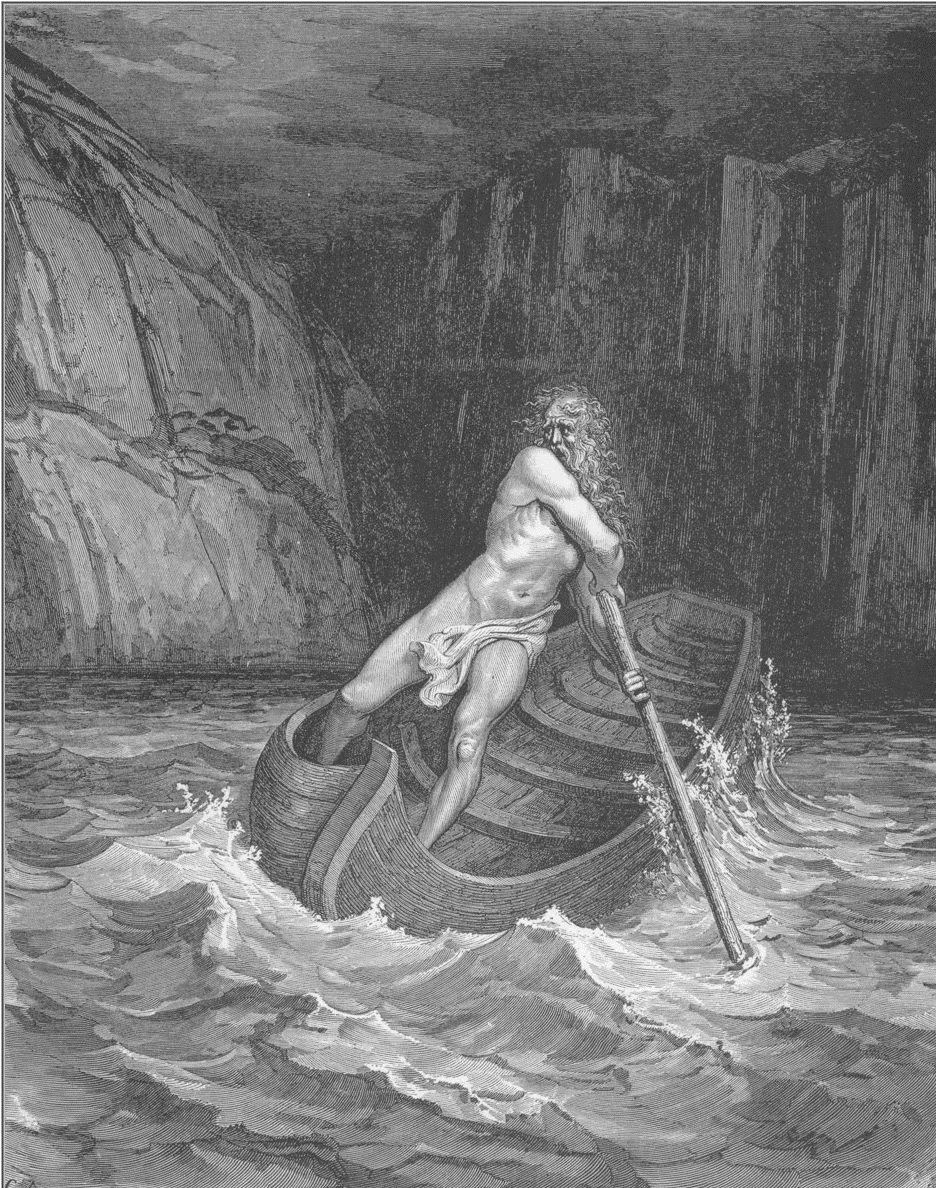The Son of Helois and Gaia. He allied with the Titans during their battle against Zeus and his Olympians and participated as a water carrier. As a punishment, Zeus decided a good punishment for him was to turn him into the water as a tributary of the River STYX was known as the Acheron, the River of Grief, leading to the Underworld Hades.

River Acheron Mythology
In ancient Greek mythology, Acheron was known as the river of pain and was one of the five rivers of the Greek underworld. In the Homeric poems, the Acheron was described as a river of Hades, into which Cocytus and Phlegethon both flowed.
The Roman poet Virgil called it the principal river of Tartarus, from which the Styx and Cocytus both sprang. The newly-dead would be ferried across the Acheron by Charon in order to enter the Underworld.
The Suda describes the river as "a place of healing, not a place of punishment, cleansing and purging the sins of humans."
According to later traditions, Acheron had been a son of Helios and either Gaia or Demeter, who had been turned into the Underworld river bearing his name after he refreshed the Titans with drink during their contest with Zeus. By this myth, Acheron is also the father of Ascalaphus by either Orphne or Gorgyra.
The river called Acheron, with the nearby ruins of the Necromanteion, is found near Parga on the mainland opposite Corfu. Another branch of Acheron was believed to surface at the Acherusian cape (now Eregli in Turkey) and was seen by the Argonauts, according to Apollonius of Rhodes. Greeks who settled in Italy identified the Acherusian lake into which Acheron flowed with Lake Avernus. Plato, in his Phaedo, identified Acheron as the second greatest river in the world, excelled only by Oceanus. He claimed that Acheron flowed in the opposite direction from Oceanus beneath the earth under desert places.
The word is also occasionally used as a synecdoche for Hades itself. Virgil mentions Acheron with the other infernal rivers in his description of the underworld in Book VI of the Aeneid. In VII, line 390, he gives Juno the famous saying, flectere si nequeo superos, Acheronta movebo: 'If I cannot deflect the will of Heaven, I shall move Hell.'
The Acheron was sometimes referred to as a lake or swamp in Greek literature, as in Aristophanes' The Frogs and Euripides' Alcestis.
In Dante's Inferno, the Acheron River forms the border of Hell. Following Greek mythology, Charon ferries souls across this river to Hell.
